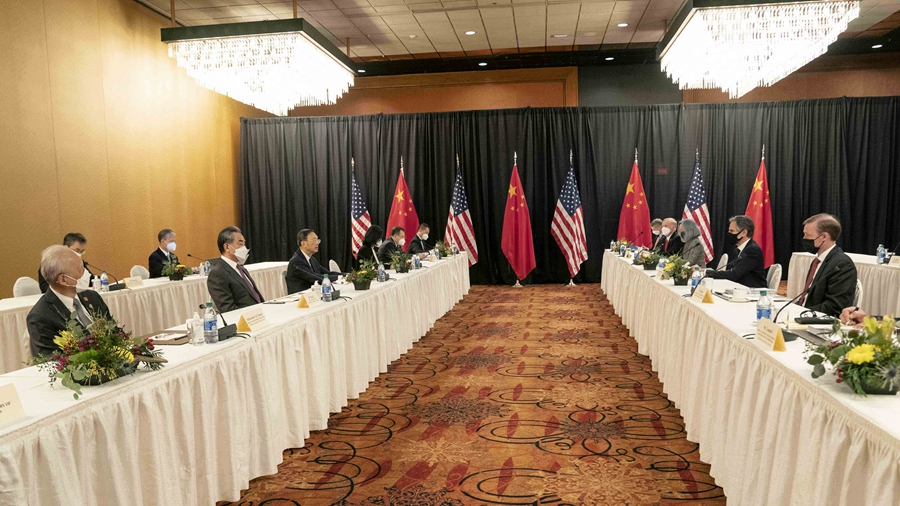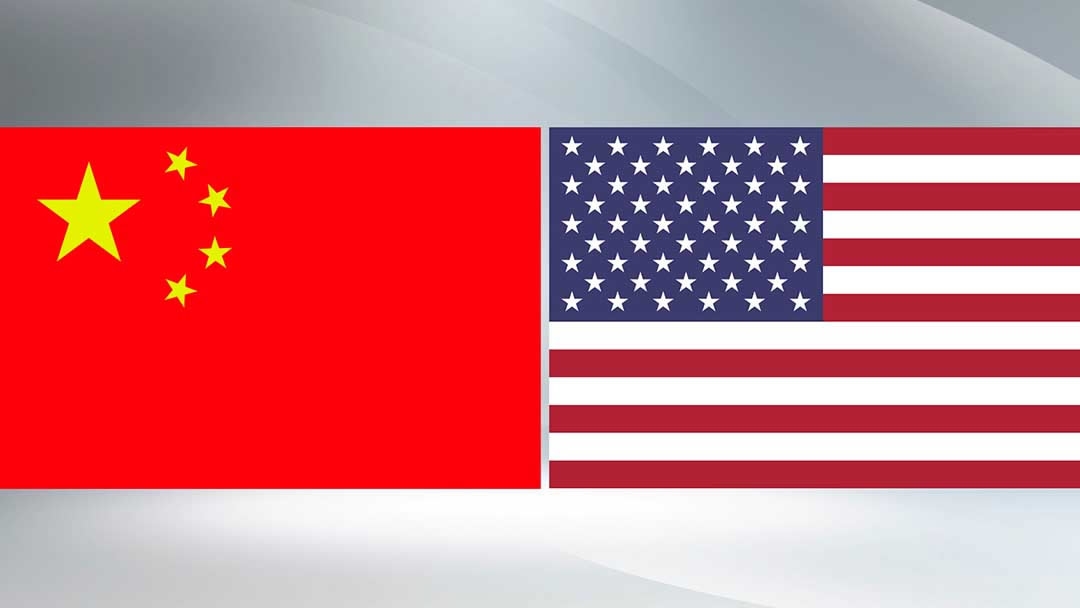
High-level strategic dialogue between China and the U.S. starts in Anchorage, Alaska, U.S., March 18, 2021. /Xinhua
High-level strategic dialogue between China and the U.S. starts in Anchorage, Alaska, U.S., March 18, 2021. /Xinhua
Editor's note: A. B. Abrams is the author of the books "Power and Primacy: A History of Western Intervention in the Asia-Pacific" and "Immovable Object: North Korea's 70 Years at War with American Power". He has published widely on defense and politics and is proficient in Chinese, Korean and other East Asian languages. He has completed Master's degrees in related subjects at the University of London. The article reflects the author's opinions and not necessarily the views of CGTN.
In sharp contrast to the détentes being pursued with all other major American adversaries, the Biden administration's posture towards China has, if anything, only further escalated hostilities. This was most clearly demonstrated at the Alaska talks in March – the first meeting between the U.S. and top-level Chinese delegations since January – where the hosts were accused of serious breaches of diplomatic protocol and "inhospitable" behavior. According to a Chinese official, the American side led by Secretary of State Antony Blinken "severely exceeded the time allocated for their opening remarks, made unreasonable attacks and accusations of Chinese domestic and foreign policies, and provoked quarrels." While China's policies were widely criticized in the West, the way the U.S. conducted itself was still generally seen as improper and far from conducive to any improvement in relations after the tumultuous final six months of the Trump administration.
Blinken notably attested to his delegation's intentions before the meeting, in terms Foreign Policy described as "about as undiplomatic as he could be." "Washington would be mostly laying down demands. The only evidence of 'tangible progress' by China would lead to more talks," the American magazine noted, stressing that Blinken was laying down "something close to ultimatums" as opposed to any kind of diplomacy. "This is not a strategic dialogue. There's no intent at this point for a series of follow-on engagements," Blinken himself emphasized before the meeting started. The approach to China contrasted starkly with that towards Russia, Iran, the Taliban, and even the DPRK – eschewing diplomacy, issuing wide-ranging demands as preconditions for further talks, and effectively making clear that there was little changing the fact that Beijing would continue to be viewed and treated as an adversary.

The American effort to effectively improve relations with every party except China – strengthening ties with pre-existing allies and reducing tensions with adversaries – appears to be part of an effort to change the dynamics of the conflict between Beijing and Washington. The goal appears to be for the United States to position itself to focus fully on confronting China while the rest of the world is either kept neutral or else aligned with Washington against Beijing. Scholar at the American Enterprise Institute Hal Brands similarly noted that month: "The U.S. can win the competition against Beijing only by making it more multilateral — by arraying an overwhelming coalition of countries against Chinese power."
As president-elect, Joe Biden had similarly stressed his intention "to build a united front of friends and partners to challenge China's abusive behavior," which would focus heavily on improving ties with European states to isolate Beijing. "We must negotiate from the strongest possible position. On our own, we represent about one-quarter of the global GDP. When we join together with fellow democracies, that number doubles. China can't afford to ignore half the global economy," he stated to this effect. Although the U.S. has struggled to stem or even significantly slow the tide towards growing Chinese dominance in the world economy and in global high tech, its moves to simultaneously shed foreign policy and defense commitments elsewhere and to rally much of the world behind it gave it a much better chance of succeeding. A price paid could be allowing Russia, Iran, the Taliban, and perhaps even the DPRK more room to maneuver in the knowledge that the U.S. was in a poor position to pay attention to them. The extent to which various parties, including both U.S.-aligned countries reliant on trade with China such as South Korea, Germany, and New Zealand, as well as America's longstanding adversaries, will be willing to support this effective realignment, remains to be seen.
Biden: Improve ties with everyone except China (Part I)
(If you want to contribute and have specific expertise, please contact us at opinions@cgtn.com.)

